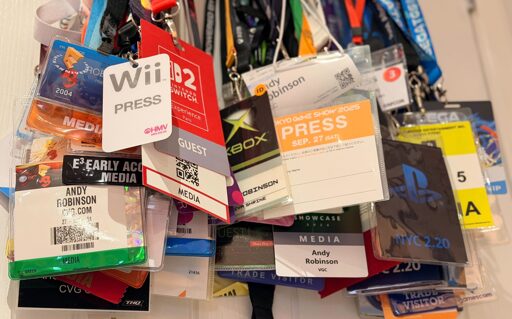“For quality games media, I continue to believe that the best form of stability is dedicated reader bases to remove reliance on funds, and a hybrid of direct reader funding and advertisements. If people want to keep reading quality content from full time professionals, they need to support it or lose it. That’s never been more critical than now.”
The games media outlets that have survived, except for Gamespot and IGN, have just about all switched to this model. It seems to be the only way it survives.



Understandable. I just feel like amalgamated scores tend not to truly reflect the subjective opinions of the reviewer as sometimes games are more or less than the sum of their parts, and then it doesn’t represent anything close to objectivity because it ignores that different people value different things more or less than others, therefore making this score not all that useful for them.
I can completely understand just wanting a quick score at a glance from a favourite review or outlet though.
I listen to podcasts featuring people who used to score games in that separated way for Gamespot, and it frequently led to scores that were out of sync with what the content of the review actually said. Plus, who’s to say if the visuals of Clair Obscur are better or worse than Hades II when they’ve got very different goals and art styles? And does it matter how high the visuals score for Bye, Sweet Carole is if they’re leaving a subpar review for the puzzles? That’s what the content of the review is for.
How grindy a game is or how it’s monetized often makes its way into a review. Publishers can get slimy around it though and turn the knobs to be more nefarious after the review period, which people can call them out for, but much like how lies spread faster than the truth, updates spread slower than initial reviews. What I’d personally like to see make its way into reviews are how much ownership the game actually grants. So many multiplayer modes are not designed to last, and no one, often times not even the people updating the features list on the Steam store page, care to mention if a game supports offline multiplayer like LAN. Some games blur the line, like Hitman, on just how offline their game and its content can be. That’s what I’m missing from review outlets.
But all of this has only been about reviews, and games media also breaks news. Real change has been happening by way of reporting on unionization and crunch. Harassers are being taken to court or otherwise removed from their position of power in their companies. Sometimes we can actually get real confirmation that absolutely nothing is happening with Bloodborne and no one should get their hopes up for anything anytime soon. All of that is valuable, too.
This is my point about why a single number doesnt make sense.
Things are not a simple sum of their parts.
Also in support of what I’m saying.
Before I completely gave up on written reviews, I feel like it was increasingly obvious that reviewers were purposefully just glossing over painfully obvious mtxs and marketting dark patterns to the point I felt like they were clearly being influenced by the fear of losing special access to ignore what they knew games companies felt strongly about.
Some ex media org folks have talked about the politics internally that went into pressuring people not to acknowledge problems like this, though I don’t recall the name of any specific source. I feel like there was a large group that split up and some of them talked about it. I want to say Jim “Stephanie” Sterling (I believe thats how they title themselves) has talked about it, but I can’t quite recall.
Anyhow, I don’t think the knobs being cranked can be fully to blame as I don’t think that happens all that often because they dont even need to. It has happened a few times infamously though and devs regularly try to boil the frog in modern games
Definitely true.
Feels like the sort of thing movements like StopKillingGames would hope regulation would solve. Id love to see like, a mandatory nutrition facts label on games dictating a minimum amount of time from launch the servers will be active, whether you can play without servers, etc etc.
True and good, but with current admin, I think we’re going to see a lot of these positive changes reverting as we come to realize that crime is legal for those affiliated and who bend the knee.